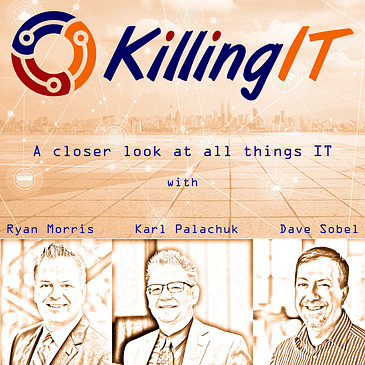Topic 1: Massive Botnet Network Taken Down
Police coordinated by the European Union's justice and police agencies have taken down computer networks responsible for spreading ransomware via infected emails, in what they called the biggest-ever international operation against the lucrative form of cybercrime.
The European Union's judicial cooperation agency, Eurojust, said that police arrested four “high value” suspects, took down more than 100 servers and seized control of over 2,000 internet domains.
Related Link: https://abcnews.go.com/Business/wireStory/massive-international-police-operation-takes-ransomware-networks-arrests-110667670
-- -- --
Topic 2: AI Update, because We Have To
Are strategies emerging?
Amazon is a brokerage for models Microsoft is doing CoPilot OpenAI is everywhere Apple just announced Apple Intelligence Cisco announces a pile of stuff
Is there a “killer app” coming soon?
-- -- --
Topic 3: How is the M&A Frenzy affecting SMB IT?
Google “m&a in it consulting” and you’ll find articles, events, advice, and a whole lot people scrambling for the almighty dollar.
Are the KPIs used in business acquisition really the KPIs you should be using to run a solid, long-term business?
The most common way that small businesses “end” are 1) Walk away, and 2) Sell the client list. None of those people are getting 3x profit or even 3x EBITDA. Should they change their business or just keep doing what they’re doing?
-- -- --
Sponsor Memo: IT Service Provider University
This episode is Sponsored by Karl’s next big class at IT Service Provider University.
The five-week course, Core Standard Operating Procedures for Small IT Service Providers, starts July 2nd and costs only $399. This class walks through the most important processes and procedures you need to run a successful, profitable IT company. And best of all, you get massive handouts as a "first draft" for your own SOP library.
More information at https://www.itspu.com/all-classes/classes/core-operating-procedures/
:-)




